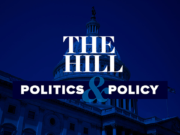This piece originally appeared in The New Jersey Star-Ledger on March 12, 2019.
When policy harms the people, our democracy relies on civic and advocacy organizations to mobilize and hold government accountable. Unfortunately, a bill in the New Jersey Legislature threatens to upend that fundamental check on power and silence many of the voices that speak truth by interfering with privacy and exposing personal information.
The legislation, S1500, would publicize names, home addresses, and employment information of donors to any New Jersey nonprofit that speaks on issues of public concern, such as discussing legislation with lawmakers, speaking to community members about grassroots causes, or publishing factual legislative scorecards.
The purported purpose of the bill is to increase transparency of ‘dark money’ in politics. However, as currently drafted, the bill goes well beyond that purpose by impacting thousands of nonprofit advocacy organizations. The narrative around the bill implies that there is something nefarious about giving to nonprofits. As a result, if the bill passes, issue advocacy groups that help make the state and nation better, and indeed help make government more accountable, could lose funding or choose less effective ways to speak.
Additionally, this legislation would provide ammunition for retaliating against those who organize. By outing those who associate with civic groups, the bill would arm powerful people with potentially damaging information that could jeopardize donors’ and activists’ lives.
This is neither far-fetched nor an abstraction. Consider Saily Avelenda, whom former Rep. Rodney Frelinghuysen targeted in a fundraising letter to her employer based on her involvement in NJ 11th for Change, which was trying to secure a town hall meeting with the Congress member. “One of the ringleaders works for your bank!” the letter said. Ms. Avelanda later resigned from her job.
But the effects could also go undetected. A potential employer could search for your name in the government database. If he or she didn’t like the group you supported, you might never get the interview. And many people give funds for philanthropic reasons to better government, but either don’t want others to solicit them for money or wish to keep their privacy for religious reasons.
That’s not a win for transparency or good government.
Nonprofits are an invaluable resource for improving government. These groups often have expertise in specific policy areas and can quickly assess whether a government proposal is well-founded. When these groups speak freely about public policy, especially about controversial causes, everyone is better off.
Disturbingly, S1500 would go beyond exposing current nonprofit donors. It would even require organizations to retroactively disclose their donors, despite people’s understanding that their identities would be kept confidential. This not only violates privacy, but betrays a bedrock trust. New Jerseyans may think twice before supporting causes in the future, even charitable ones. The question of whether your contribution will be private or public should be settled before giving.
S1500 has passed the Senate and now awaits consideration by the Assembly. According to reports, the Assembly is thoughtfully considering appropriate amendments to the bill.
If the Assembly decides there is indeed a need for more disclosure in New Jersey, then the bill should be narrowly tailored to target only those groups with close ties to candidates for office. Most groups that speak about lawmakers or public policy have no such ties. A blanket rule exposing supporters’ personal information would punish private individuals for the actions of politicians. As currently written, S1500 is incredibly broad – it takes a sledgehammer to a problem best solved by a scalpel.
The way to counter corruption and check the influence of entrenched power is not to pry open the donor files of organizations, but to increase participation in democracy – including by protecting the identities of people involved with advocacy organizations. Rather than discourage giving to nonprofits, the state should consider making it easier for New Jerseyans to support the causes of their choice.
The most significant social movements of the last century – for civil rights, racial equality, and LGBTQ rights, to name just a few – were powered by the ability of like-minded people to join and support groups, and to do so privately. Our society would not be where it is today without this fundamental right.
The equation for democracy is government transparency with individual privacy. Let’s work hand-in-hand to ensure the right balance.














